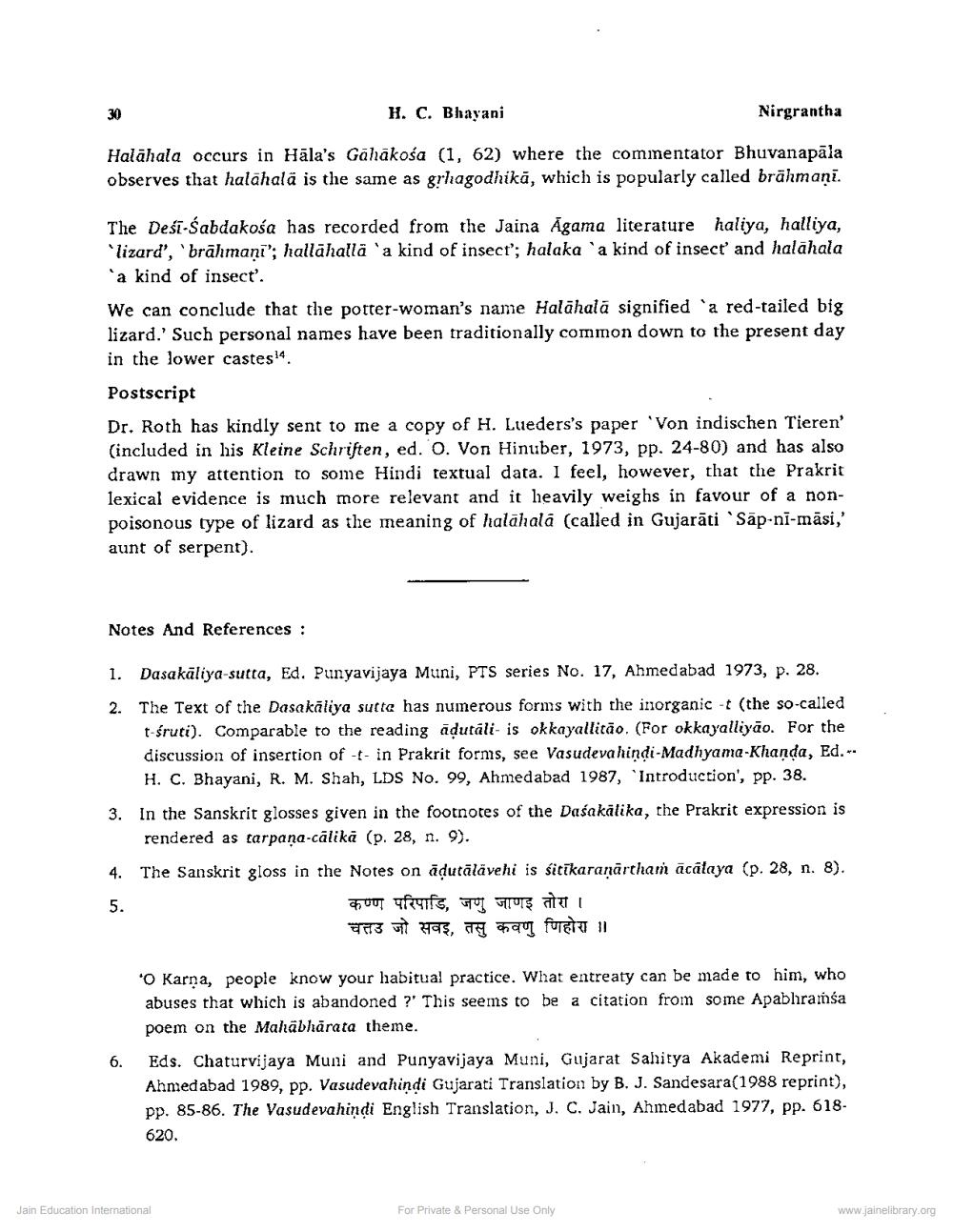________________
H. C. Bhayani
Nirgrantha
Halāhala occurs in Hāla's Gāhākośa (1, 62) where the commentator Bhuvanapāla observes that halāhalā is the same as grhagodhikā, which is popularly called brāhmani.
The Deši-Sabdakośa has recorded from the Jaina Agama literature haliya, halliya, 'lizard', 'brāhmaṇi'; hallāhalla 'a kind of insect'; halaka'a kind of insect' and halāhala 'a kind of insect. We can conclude that the potter-woman's name Halāhalā signified 'a red-tailed big lizard.' Such personal names have been traditionally common down to the present day in the lower castes!4. Postscript Dr. Roth has kindly sent to me a copy of H. Lueders's paper 'Von indischen Tieren' (included in his Kleine Schriften, ed. 0. Von Hinuber, 1973, pp. 24-80) and has also drawn my attention to some Hindi textual data. I feel, however, that the Prakrit lexical evidence is much more relevant and it heavily weighs in favour of a nonpoisonous type of lizard as the meaning of halāhala (called in Gujarāti 'Sap-ni-māsi,' aunt of serpent).
Notes And References:
1. Dasakāliya-sutta, Ed. Punyavijaya Muni, PTS series No. 17, Ahmedabad 1973, p. 28.
2. The Text of the Dasakāliya sutte has numerous forms with the inorganic -t (the so-called
t-sruti). Comparable to the reading adutáli- is okkayallitāo. (For okkayalliyão. For the discussion of insertion of -- in Prakrit forms, see Vasudevahindi-Madhyama-Khanda, Ed.-- H. C. Bhayani, R. M. Shah, LDS No. 99, Ahmedabad 1987, "Introduction', pp. 38.
3. In the Sanskrit glosses given in the footnotes of the Daśakālika, the Prakrit expression is
rendered as tarpaņa-cālikā (p. 28, n. 9).
4. The Sanskrit gloss in the Notes on ādutālāvehi is sitīkaranartham ācālaya (p. 28, n. 8).
कण्ण परिपाडि, जणु जाणइ तोरा । चत्तउ जो सवइ, तसु कवणु णिहोरा ॥
"O karna, people know your habitual practice. What entreaty can be made to him, who abuses that which is abandoned ?' This seems to be a citation from some Apabhramsa poem on the Mahabharata theme.
Eds. Chaturvijaya Muni and Punyavijaya Muni, Gujarat Sahitya Akademi Reprint, Ahmedabad 1989, pp. Vasudevahindi Gujarati Translation by B. J. Sandesara(1988 reprint), pp. 85-86. The Vasudevahindi English Translation, J. C. Jain, Ahmedabad 1977, pp. 618620.
Jain Education International
For Private & Personal Use Only
www.jainelibrary.org




